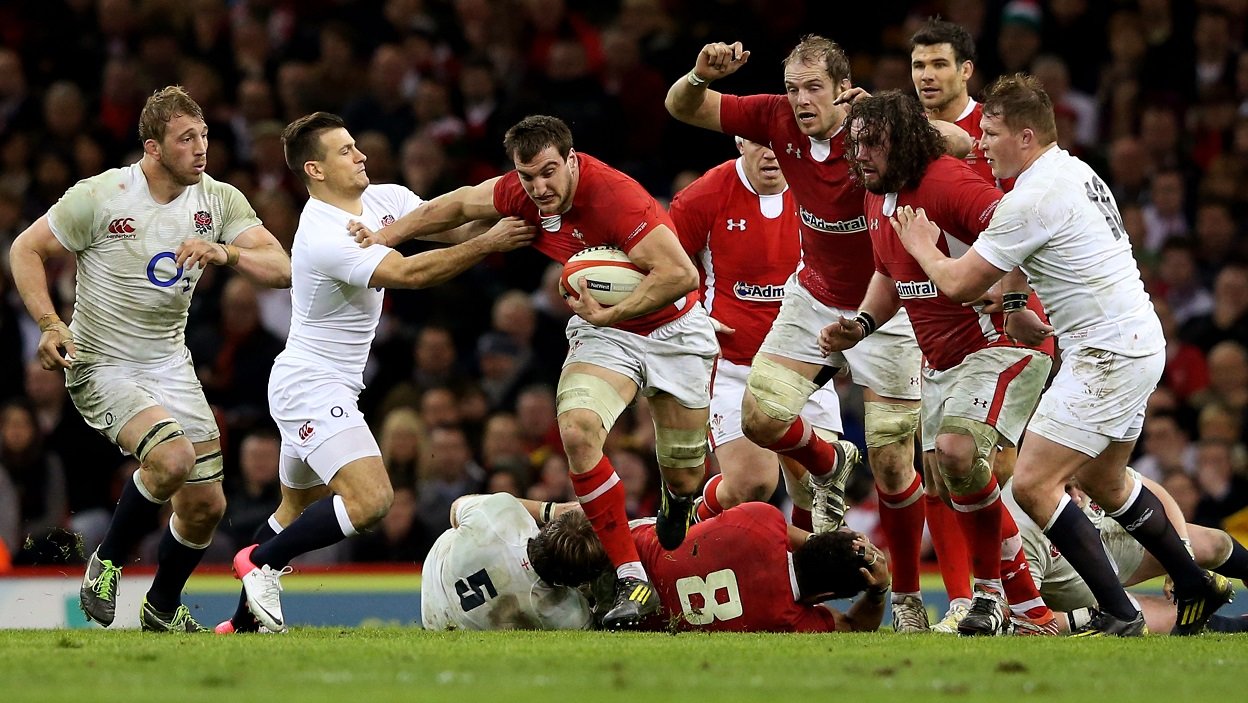The Six Nations, Wales' Roof and Rob Howley's Cunning Plan

Wales’ request to the Six Nations’ organisers to declare the Principality Stadium a ‘closed-roof ground’ is the opening salvo in the pre-tournament psychological war, writes James Harrington.
Ah, the build up to the Six Nations. That period of anticipation before the rugby begins when all the talk and mind games that have to stop when the tournament actually kicks off get their 15 minutes of fame – or infamy, depending on what actually happens when the referees’ whistles finally blow.
England’s Eddie Jones is a grandmaster of pre-match psychological warfare. Both Scotland’s Vern Cotter and Ireland’s Joe Schmidt know their way around a well-judged barb. Italy’s relatively new man in charge Conor O’Shea just smiles, safe in the knowledge that his job – despite that win over South Africa in November – is tough enough without joining in the coaches’ annual pre-tournament verbal pissing-up-a-wall contest. France’s notoriously media-wary Guy Novès, meanwhile, pulls off that very French trick of letting his reticence do most of the talking.
Twelve days before the Six Nations kicks off, and with the freshly minted squads just meeting up for their pre-tournament training camps, it’s still a little too early for the coaches to get their teeth into each other – expect that sort of thing to start in earnest next week.
But that has not stopped Wales from trying to steal an early march on their opponents. Acting head coach Rob Howley has asked his bosses at the WRU to ask Six Nations’ organisers to declare the Principality Stadium a closed-roof ground. That would mean every fixture there would be played under cover, regardless of the weather conditions in Cardiff.
It’s an audacious idea that sidesteps the usual tedious procedure of getting agreement from the opposing team that Warren Gatland, currently on British and Irish Lions’ duty, has gone through for many a match. Howley claims his request – due to be considered this week – is purely in the interests of ensuring ‘the best conditions for the best rugby’.
“I think the roof should be closed so that games can be played to the benefit of both the teams,” he said, adding that the tournament’s new bonus point system adds weight to his argument for closing the roof against the fickle Welsh weather in February.
So far, so – just about – justifiable. But, then, Howley let slip a hint to another reason for wanting the lid on the pressure cooker that is the Principality Stadium.
[rugbypass-ad-banner id=”1473723660″]
“We generally shut the roof in the autumn, but I made a mistake against Australia last year and kept it open because it was a fine day. I underestimated the occasion and it was not the best decision for the team. I think the roof has to be closed going forward.”
Australia won that open-to-the-elements match in November 32-8.
Notice that Howley said nothing about about giving his players every home advantage, of giving the deafening roar of Welsh fans near-physical form as it crashes and echoes around the enclosed caldera under the roof. See how he made no mention of the prospect of cowing the opposition by audience participation.
Wales’s two home matches this year are against England and Ireland – two sides with shorter odds than Howley’s men of winning the tournament. Of course, Howley will be looking for every advantage he can get. Under the current system, Jones and Schmidt would have to agree to individual requests from the WRU to close the roof 48 hours before the games kick off.
If either side wants the roof to stay open, it stays open.
Martin Johnson insisted rugby ‘is an outdoor game’ when he took England to Cardiff in 2011. The game was, eventually, played under a closed roof due to concerns over the weather. The visitors won.
In 2013, England headed to Cardiff with a Grand Slam in their sights. It was Stuart Lancaster’s first Six Nations as head coach – and he agreed to a request to close the roof. Wales, with Howley deputising for Gatland, won the match – and took the Six Nations’ title from under English noses – 30-3 in an atmosphere so febrile it should have had a public health warning.
Wales had kicked off their tournament that year against Ireland. The roof was open – and Ireland held off a Welsh fightback to win 30-22.

Two years later, a wiser Lancaster refused Gatland’s request. With the lid open, and the pressure from the stands released, England won 21-16. Against Ireland in the same tournament, Gatland made an unusual decision – for him – to keep the roof open. It proved the right call, as the hosts won a nerve-shredding encounter 23-16.
In 2017, the decision could be taken out of Jones and Schmidt’s hands courtesy of an adroit piece of pre-tournament manoeuvring from a man his detractors know as ‘Howler’.

































































